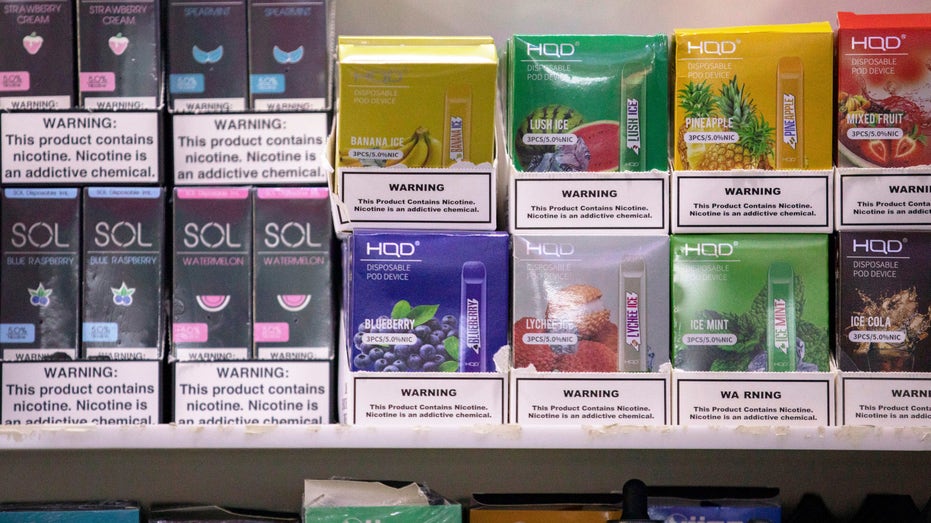FDA vaping regulations cleared to continue after Supreme Court declines to hear challenge to authority
Mississippi vape shop said Congress gave too much decision-making authority to FDA
The Supreme Court Monday declined to hear a case that could have severely limited the authority of the executive branch to regulate the vaping industry – leaving in place the basis for the government's heavy regulations on the sector.
The case pitted Big Time Vapes Inc., a vape shop in Mississippi, against the Food and Drug Administration (FDA). The case turned on whether Congress gave the FDA too much authority in the 2009 Tobacco Control Act (TCA), which allowed it to extend regulations that previously applied to only cigarettes and smokeless tobacco to other "tobacco products."
The industry has argued that vapes have the potential to significantly reduce the harm caused by cigarettes, while others warn the appealing flavors of the products could defeat that purpose by hooking young people who otherwise would not have smoked.
The FDA extended TCA regulations in 2016, deeming it to apply to cigars, pipe tobacco and vaping products. It subsequently also issued a slew of regulations on vapes under the Trump administration.

This Jan. 31, 2020, photo shows various brands and flavors of disposable vape devices at a store in the Brooklyn borough of New York. The Supreme Court declined to hear a case that could have severly limited the FDA's authority to regulate vapes on M
SUPREME COURT PUNTS ON INCLUDING WOMEN IN THE DRAFT, CITES ‘DEFERENCE TO CONGRESS’
Big Time Vapes emphasized the market significance of the FDA regulations on the industry: "The FDA’s Regulatory Impact Analysis promulgated with the Deeming Rule estimated that the Rule would cause 54% of ENDS delivery system hardware products to exit the market and 50% to 87.5% of e-liquid products to exit the market."
The vape shop said that because the law gave the FDA "no guidance as to the circumstances under which the Secretary should regulate additional products," such decisions fell unconstitutionally to the FDA's "unbridled discretion."
This is contradictory to the "nondelegation doctrine," the vape shop said, because there was no "intelligible principle" given to guide FDA decision-making.
By declining to hear the case, the Supreme Court allowed the lower-court rulings against the vape shop and upheld the FDA's regulatory authority to stand.
The FDA under the Biden administration argued the context of the law gave it a broad mandate to regulate products that could lead to people becoming dependent on nicotine.
GET FOX BUSINESS ON THE GO BY CLICKING HERE
"In the definitions, findings, and statements of purpose that it included in the TCA, Congress laid out intelligible principles with appropriate boundaries for FDA to apply," the FDA wrote in a brief. "[T]hat FDA should comprehensively regulate the tobacco industry to protect the public from nicotine dependence, tobacco-related health risks, and false and misleading advertising – with a particular emphasis on protecting children from such dangers."
The Supreme Court is nearing the end of its term with about two-dozen cases left to resolve. The new Republican-appointed majority, including Justice Amy Coney Barrett, will be watched closely during this time to see how it handles major cases on speech, religion, health care and more.





















